Blog Layout
Industry News
Cybersecurity Essentials for Your Business
Digital Connection • May 27, 2021
Cyber attacks are on the rise and both small and large businesses are at risk. The best way to protect your business is to invest in cybersecurity practices. Spending time, money, and resources on cybersecurity may seem like a burden, but in the long run, this is an investment that will benefit your business greatly in the years to come.
What is cybersecurity?
In today’s world, the internet, and technology are an integral part of our everyday lives. Now that many of us are working remotely – businesses have shifted to online mediums. With the increased use of the internet and technology comes the huge risk of cyberattacks – especially for small businesses as they are considered “low hanging fruit”. The main goal of cybersecurity is to ensure a strong defense line against cyber attacks.
Common types of cybersecurity threats
- Phishing - the practice of sending fraudulent emails that resemble emails from reputable sources. The aim is to steal sensitive data like credit card numbers and login information. This is one of the most common attacks, especially against the general public.
- Ransomware – often looks like an email from an official source with an attachment. The attachment is designed to extort money by blocking access to files or the computer system until the ransom is paid.
- Malware - is a type of software such as computer viruses, spyware, Trojan horses, and keyloggers designed to gain unauthorized access or to cause damage to a computer.
- Social engineering - is a tactic that adversaries use to trick you into revealing sensitive information. They can solicit a monetary payment or gain access to your confidential data. (Link clicks, download malware, etc)
What companies can do to protect themselves
Businesses of any size can affordably protect themselves with enterprise-level security. Digital Connection Office Systems offers a range of Managed IT Solutions to help protect your data in addition to these steps:
Data Backups
Whether your data is stored locally on your computer or on the cloud, all businesses should regularly make backups of all important information. This includes word processing documents, electronic spreadsheets, databases, financial files, human resource files, and accounts receivable/payable files. Creating regular backups can ensure that all-important data can be restored at any time. You can even set up automated backups, so you never have to worry about it again.
Keep Your Software Up to Date
Keeping your software up to date is a crucial step in internet safety. Most software updates automatically but knowing how to keep your software updated can improve your computer's security and let you know about more features.
- Turn on automatic system updates for your device
- Make sure your desktop web browser uses automatic security updates
- Keep your web browser plugins like Flash, Java, etc. updated
Use Anti-Virus Protection & Firewall
One of the first lines of defense is using a reputable and trustworthy Anti-virus (AV) protection software. AV is very efficient and will catch most of the malware attacks and other malicious viruses from entering your device and compromising your data. It is important to note that malware is constantly advancing at rapid rates, so sometimes the software is unable to detect it, so it is important to use other cybersecurity measures.
Using a firewall is also important when trying to prevent cyber attacks. A Firewall can help screen out hackers, viruses, and other malicious activity that occurs over the Internet and determine what traffic can enter your device. It is also important that employees working from home install a firewall on their home network as well.
Use Two-Factor or Multi-Factor Authentication
Multi-factor authentication (MFA) is very important for modern business. If employees are using weak passwords, attackers are more likely to hack their accounts. MFA provides an extra layer of security by asking for multiple types of information to identify the user before logging in.
Types of MFA
- Facial recognition, fingerprint, or eye scans
- PINS, OTP, and software certifications.
Educate Your Staff
Train your employees how to recognize and respond to a cyber attack. Come up with a plan to alert your administrator to any suspicious emails or unusual activity – even if it turns out to be a false alarm.
We offer many different IT package solutions built to meet your business needs. Reach out today for more information and how Digital Connection can help prevent cyber attacks in your business.
Subscribe to Our Blog
Stay up to date with the latest technology and industry trends
Contact Us
Thank you for signing up to the Digital Connection Blog.
Oops, there was an error sending your message.
Please try again later.
Please try again later.

By Don Linder, Industry Specialist
•
June 1, 2021
Nowadays, multifunction printers can literally do it all. If you have no time to fire up that desktop, or if you simply want the convenience of printing straight from your smart phone, tablet or wireless device, mobile printing might be the way to go. This is especially beneficial for companies whose employees work on multiple types of devices, across multiple locations. According to research from the International Data Corporation, organizations are adopting mobile devices at a fevered pace, with large/medium companies leading the way. And these mobile device users are increasingly interested in printing directly from their devices. In my experience, the paperless office doesn’t completely happen for most organizations. Even companies that have tried to go paperless still find themselves needing to print various files to paper, or needing to scan various paper sources of data into digital files. Mobile printing lets employees easily bridge that gap. Companies across a diverse range of industries can benefit from embracing mobile printing. For example, a real estate office could help its salespeople to print sales documents or legal forms directly from their iPads, without having to log on to their desktops. Field staff who need to include pictures taken on site can print them as part of their report. Multifunction printers can also benefit those without smart devices — frequently needed documents can be saved onto the printer itself and printed at the touch of a button. This could help organizations with a large number of casual employees or volunteers, such as a church or nonprofit group. A trucking company could help their drivers (who typically don’t have desks, or computers) to print out trip logs or forms. Think how useful it could be to print forms as and when they are needed, without having to set aside a desktop computer and space for that task. Your best employees want to be as efficient and productive as possible. Mobile printing is quick, easy and hassle-free. Give your employees the tools to be the best they can be!

By Don Linder, Industry Specialist
•
May 25, 2021
Does your moody old scanner have you mad as hell and reliving the scene from Office Space as you plot its demise? Perhaps you dream of smashing your old copier with a hammer. Whatever the frustration, in this age of multitasking, a new commercial-grade multifunction printer (MFP) makes sense for many organizations. A business might buy a higher grade of MFP for many reasons, including efficiency, increased productivity, better reliability, competent support and, of course, cost savings. But before you head out with credit card in hand, here are a few things to consider: 1. Understand your needs. Take a good look at the volume and type of printing you're doing. Will consumer-grade equipment (low initial cost, high operating cost) cut it or should you move up to commercial grade? Are you using several small printers around the office? Are you outsourcing any printing? Do you print different types of materials, such as brochures and manuals? The potential for cost savings could be tremendous. 2. Examine your workflow . Is time being wasted by over-handling documents and hopping around between equipment? Could you benefit from an MFP with special organizing software? 3. Ensure you can support a commercial- grade printer. Printing is essential in most offices, but it can be frustrating if things go wrong. Does your business have IT people on hand if there's a hiccup? If not, make sure your supplier has local IT capability and can help if there's a problem. 4. Investigate suppliers . If you have a question, will you be stuck making your way through a phone tree or will you talk to a real, live person? Does the supplier have enough technicians to respond quickly? Do they offer continuous training as your staff changes and your work processes change? Do they regularly perform preventative maintenance to correct problems before they occur? 5. Think about the future. What happens if your needs or the technology changes? Is the supplier willing and able to upgrade your equipment for you? Is the supplier growing in your local market or are they shrinking? Buying any new piece of equipment takes careful consideration. Both the product and the supplier need to be reliable, so take the time to do your research. Like all new ventures, expect a learning curve; with the proper equipment from the right people, it's some short-term pain for long-term gain. Interested in upgrading your office technology? Reach out to us for a free technology consultation from one of our industry specialist.

By Digital Connection
•
May 20, 2021
The paperless office — does it really exist? Or, like Sasquatch and Ogopogo, is it just a legend, built upon the fanciful dreams of idealistic office managers? While not yet a reality for most businesses, it is a worthwhile pursuit. Aside from the obvious benefits to the environment, there are a number of scenarios in which “paperless” is the best option for increased productivity and reduced costs and clutter. The Accounts Payable Pickle — Difficulty in managing invoice paper trails can often lead to late or even missed payments. This situation is particularly problematic when a business is quite large, has multiple locations or people are in the field and communication is intermittent. Appropriate document software can eliminate the need for physical invoices, and payments can be approved or recorded quickly and remotely via mobile devices. We’ve helped companies as diverse as professional services firms and contractors streamline their A/P process. The Fax Fix — Print it out, get up and fax it off, bring it back and file it away. Believe it or not, faxes are still predominant in some industries — but it can be a frustrating waste of time and paper. Desktop faxing programs can send and record faxes without paper ever being used. This is particularly useful for medical offices and notaries. The Retrieval Conundrum — Many businesses, whether by law or other regulations, are required to keep documents for years. This can use up valuable office space and retrieval can sometimes take hours. Many businesses, such as real estate and medical offices, are turning to management software to electronically store and index their records so that they can be retrieved at a moment’s notice. The Disaster Dilemma — As the saying goes, “back it up or pack it up.” Though we all hope nothing will happen to us, in the case of disaster, very few companies have backups of everything they need to restart quickly in case the unthinkable does occur. Like any new approach, going paperless can come with a learning curve, but nothing good comes without some effort. As an aside, it may seem contradictory that a premium provider of printing solutions takes the time to promote going paperless, but our goal is to help our clients increase productivity and reduce costs wherever they can. If you’re ready to take the paperless plunge, give us a call. For more information on moving to a paperless office set up your free office technology consultation!


